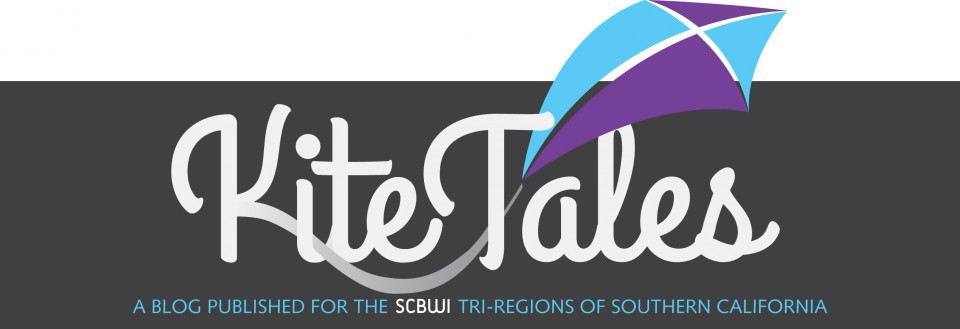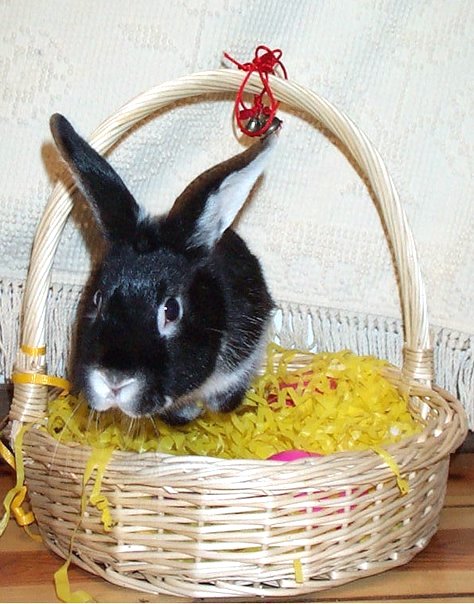Tags
Alice Walker, Ally Malinenko, Beatrix Potter, Cristina Fernandez, editing, Ghost Girl, rabbits, Rejection, Sara Schonfeld, Writers Day, Writers Day 2021
Jumping from journalism to editing, Sara Schonfeld never strayed far from children’s stories. She joined Katherine Tegen Books in 2019 and has recently taken on the role of Associate Editor for the imprint. Her list includes everything from picture books to young adult novels from authors such as Alice Walker, Cristina Fernandez, and Ally Malinenko (author of the forthcoming Ghost Girl).
A rabbit lover and fan of anything Marvel, this “Bunny Boss” is looking for stories that are uplifting and affirming, showing the power of relationships, identity, and self for young readers.
Sara will be sharing insights on rejection letters and how to make the most of them in her presentation during SCBWI-L.A.’s Writers Day 2021. She has given us a preview of some of those tips here on Kite Tales, but you can still register for the event here to get the full scoop.
Jessica Chrysler: Congratulations on your promotion to Associate Editor at Katherine Tegen Books! What’s different about this position and how do rejections play a role in your day-to-day?
Sara Schonfeld: Associate Editors get to acquire more projects! But I still spend a good portion of my day writing rejections. There is so much rejection in this industry on all sides. Writers face a lot of it, agents and editors do as well. It’s always disappointing to get that pass or “no thank you,” but I think there’s a lot that can be gleaned from responses that even seem like form rejections.
The most common response that I send people is that I didn’t connect to the voice. Generally, this refers to the prose (word choice, sentence structure, etc), but it could also refer to how the different aspects are developing and how your narrator functions. So, I wanted to unpack that and hopefully empower the author that receives this kind of feedback and give them something to take away from it.
JC: On your manuscript wishlist you mention that “cinematic voice” is something you look for. But what does that mean to you and does that play a role in connecting with the voice?
SS: When I say “cinematic voice” it means I want the writing to step out of the way from the story. I enjoy literary writing, but when you can say “wow, this is a beautiful sentence!” and also find the story itself incredibly accessible, for me that is cinematic voice — where you can envision the scene, get to know the characters, and the word choice doesn’t get in the way.
To a degree it’s a comment on how naturally the writing flows and I think some of that is practice. Some of that is talent. But there’s a lot of grit to writing. I think anything can be learned and I highly recommend reading and consuming any kind of media where you can learn storytelling. There’s some great lessons to be learned from watching a Marvel movie (I’m a big fan!) and reading scripts or screenplays. Looking for story beats and how twists are introduced, and finding out what you love, will help you find your voice.
JC: So when you say that there’s a lot of grit to writing, what does that mean?
SS: The editorial process for a book that’s traditionally published takes years. And that’s just my part of it. Most authors work on their books for years before it even gets seen by an agent, and then they might work on it for a year with their agent before I even see it.
I think sticking with it, staying true to yourself and your story, and also having the tenacity to continue in the face of criticism and rejection, gives an author the grit that they need to be successful. And not just successful in terms of numbers but to get the thing in your mind out of yours and into someone else’s. It’s a little like telepathy — you’re beaming your story into someone else’s brain through words.
JC: So what kind of stories would you like beamed to your inbox? What have you been seeing a lot of lately?
SS: There are so many stellar projects coming to my inbox and I just want to read them all! It’s so hard to reject because they really are nailing my tastes. I’ve been getting a lot of spooky things. And I do like the potential to tell a meaningful story with that: These stories can really dig into the themes and questions that kids are facing today.
But I would love to see more mystery, especially mystery adventure. I really want a middle grade National Treasure, because I think that sort of adventure, dealing with history, and digging into your personal heritage is so much fun.
JC: Do you have any tips for our audience on their path to publication?
SS: I do really recommend reading. Not only reading books that you enjoy, but also books that are closest to what you are writing. Finding out who your shelf-mates might be one day is not only incredibly helpful for querying, but it also shows you what trends. You can learn so much from your peers, too.
I also recommend having a game plan for when you experience rejection. I also write, so I’ve also experienced that sort of rejection. You need to experience that sadness, feel the emotion, but be able to work through it. I like to listen to a song or go for a walk and say “okay, I’m upset” but then realize it’s not a quality judgement on me or my writing. It’s just not a fit and that person can’t be a champion for my book. So, stick with it and realize that rejections are often sent with love.
Lastly, I’d suggest spending your time while querying or on submission with editors to start thinking about your next project. Because what makes you a writer is sitting down to write. There’s a lot of waiting in this industry, so get back at it!
JC: And just for fun: You’ve also mentioned that you had pet rabbits as a kid. Do stories starring bunnies have a special place in your heart?
SS: We had five rabbits over the years. And at my first publishing job, I assisted on Beatrix Potter’s books, working closely with their estate. Afterward I ended up getting all these other rabbit and bunny themed projects. So the team gave me the nickname “Bunny Boss,” and whenever a project came in with bunnies, they’d send them over to me. Bunnies definitely have a special place in my heart and on my list!
SCBWI-L.A.’s 2021 Writers Day is on June 12-13 — click here to register or learn more about what SCBWI-L.A. has in store for you this year!
For more fantastic content, community, events, and other professional development opportunities, become a member today! Not sure if there is a chapter in your area? Check here.
Images provided by Sara Schonfeld.




Pingback: 10 Inspiring Kite Tales Quotes from 2021 | Kite Tales